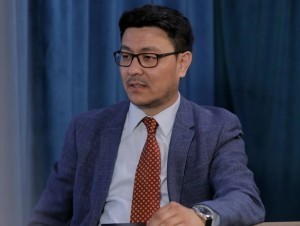Examining the State's Approach to Combating Extremism: Ethical Concerns Surrounding the Detention of “Babies”
Interviews
−
11 May 2023 18975 8 minutes
"Nasheed" is an Arabic word meaning "song" or "hymn." Nasheeds are popular throughout the Islamic world as they are sung in different languages by different people, often focusing on faith in Islam, its history, and moral spirit. However, due to their predominantly Arabic nature, nasheeds can sometimes be challenging to understand even for believers in Islam. Many people around the world, who appreciate the melodic beauty of nasheeds, listen to various compositions with different themes.
Regrettably, terrorist and extremist organizations have adeptly exploited this art form to propagate their ideas. In the Tashkent region, a 21-year-old named Jahangir Ulugmurodov was sentenced to three years imprisonment for sharing an extremist Arabic message advocating "Jihad" and "hijrat" with a Telegram group comprising of only ten subscribers.
During the investigation, Jahangir, a student at Tashkent State University of Economics, claimed that he had no knowledge of Arabic and did not comprehend the meaning of the nasheed. He explained that he was solely attracted to the melody and therefore, shared the video with his classmates, as it was freely available on YouTube.
The QALAMPIR.UZ team visited Jahangir's home to speak with his family. Gulchehra Umarova, the accused's mother, provided an account of how the incident unfolded. She explained that initially, Jahangir was summoned in connection with a theft case at a nearby cottage. Law enforcement officers informed her that all individuals named Jakhongir in the neighborhood were being summoned to court due to the thieves using the word "Jahan" (meaning "world" in Uzbek) during the incident. Gulchehra promptly informed her son about the situation, and he willingly went to court. However, later that evening, Jahangir's friend and his mother arrived, accusing him of sending a nasheed to their children. Confused and unaware of what a nasheed was, Gulchehra sought an explanation from her son.
Jahangir, upon returning home, claimed that he had no idea it was a wrongful act and considered it just a song.
News of Jahangir Umrzakov's arrest spread across various social media platforms, sparking heated discussions among the public. Alisher Sadullayev, the Director of the Youth Affairs Agency, advocated for giving the young man another chance, while businessman Zafar Hoshimov criticized the severity of the punishment. Other activists also expressed their dissatisfaction with the verdict.
However, Bobur Tolaganov, the press secretary of the Head of the Internal Affairs Department of the Tashkent region, released an official statement asserting that Jahangir Umurzakov had knowingly spread the message, fully understanding its meaning. Tolaganov claimed that during the search operation, investigators discovered evidence suggesting that the accused had been influenced by the ideology of the international terrorist organization known as the "Secretary of Tawhid and Jihad" operating in Syria. He further alleged that Jahangir had engaged in spreading lectures on "Jihad" and "Call to martyrdom" among his acquaintances and relatives via the internet to attract more supporters for the organization. One of the materials distributed by Jahangir Umurzakov was a nasheed titled "Feel Consent, If We Are Martyrs," containing lyrics that promote becoming a martyr, sacrificing one's life for God, and fighting against enemies as mujahideen. The Committee on Religious Affairs of the Republic of Uzbekistan has deemed such materials influenced by religious fanaticism, hence their prohibition on the country's territory.
Nevertheless, Jahangir's parents vehemently deny these claims made by the authorities.
"If he has indeed been engaging in this activity regularly, there should be some evidence to support it. However, the only evidence presented in court was a 4-minute and 38-second song. My son was accused of violating Clause 'g' of Part 3, Article 244 of the Criminal Code. If the claims made by the DIA are true, shouldn't they be mentioned in the court's opinion? His phone was confiscated, but no other illegal content was found. It's disheartening that my son is being imprisoned solely based on those four lines of poetry. His mother has been unable to sleep since his arrest, with tears constantly in her eyes. As a man, I have to remain composed," expressed Jahangir's father Olmos Dostyarov.
We also spoke with Jahangir's friends and asked them about their knowledge of nasheeds and how they distinguish between prohibited and non-prohibited ones.
"All ten of us created a separate group to avoid any kind of insults that were occurring in our common classmates group about ten to fifteen days ago. In our group, we only greeted each other; we didn't even pay attention when Jahangir shared the link to that banned song. None of us opened it or listened to it. I wanted to share these details during the court proceedings, but I wasn't called in for questioning. Jahangir should be given another chance. Personally, I don't even know what a nasheed is. If one were to be presented to me, I wouldn't even know if I can listen to it or not. We were never educated on this matter, so how are we supposed to know what is permissible and what is not? We don't even understand Arabic," explained Jahangir's friend, Husan Mirodimov.
"This situation could happen to any young man. What actions should the state take to prevent such unfortunate incidents? Are they currently taking any measures? Is there any effort being made to combat prejudice? Are people even aware of it?"
The Ministry of Justice only announced the list of internationally banned terrorist and extremist groups in Uzbekistan in January 2022. Even today, this list is readily available on the public information portal. However, the state TV channels failed to warn citizens by broadcasting this list, and responsible government bodies did not issue any warnings or call for vigilance.
"The lawyer also mentioned that he would not have understood the significance of the matter even if he had come across it. They claim not to understand it, despite having a higher education. My son has just begun his adult life. He has no knowledge of Arabic. He simply listened to it as a song. I always watch TV. Why don't the officials use television to warn people about these things? There are so many advertisements. Why can't they replace one of them with a warning, at the very least? How are we supposed to know?" expressed the accused's father.
Another friend of Jahangir, Samariddin, revealed that Jahangir had grown up facing difficulties since childhood. He worked and earned money to prepare for his studies. He secured a grant and enrolled in Tashkent State University of Economics, where he had limited free time due to his job. Hence, he did not have the opportunity to join those groups.
"On the 20th of February, a criminal case was initiated against Jahongir Umurzakov under the third part of Article 244-1 of the Criminal Code, which pertains to the preparation, storage, and distribution of materials that pose a threat to public safety and order. Although the law prescribes a prison sentence ranging from 5 to 8 years for this offense on the 8th of May this year, the Okkurgan District Court in the Tashkent region imposed a sentence of 3 years imprisonment. This sentence is less than the minimum prescribed, and it was justified using Article 57 of the Criminal Code, which allows for a lighter sentence. The decision took into account the circumstances and motivations behind the crime, the defendant's behavior before and after the offense, and the nature of the crime," stated the DIA.
"Recently in Kashkadarya, there was an incident where DIA officers attempted to arrest a young man simply because he has a flag hanging from his shoulder. This incident brings to light the question of how long such situations will persist. How many more young people are the authorities expecting to veer off course? The primary objective should be prevention rather than punishment. However, the responsible entities must be held accountable for their failure to prevent such situations, their lack of educational efforts, and their inability to identify and block prohibited content before it reaches the accused.
Are the diligent DIA employees, who were able to uncover the mistakes made by young people three years ago, as well as the experts at the Committee on Religious Affairs, who presumably possess a better understanding of nasheeds than the youth themselves, incapable of identifying the extremist materials that flood the internet on a daily basis? Or will the state persist in combatting bigotry by imprisoning twenty-year-olds?
It is crucial to re-evaluate the approach and find a more proactive and preventative strategy. The focus should be on education, awareness, and guiding young individuals towards a path of understanding and tolerance. The future of our society depends on it.
Live
All



